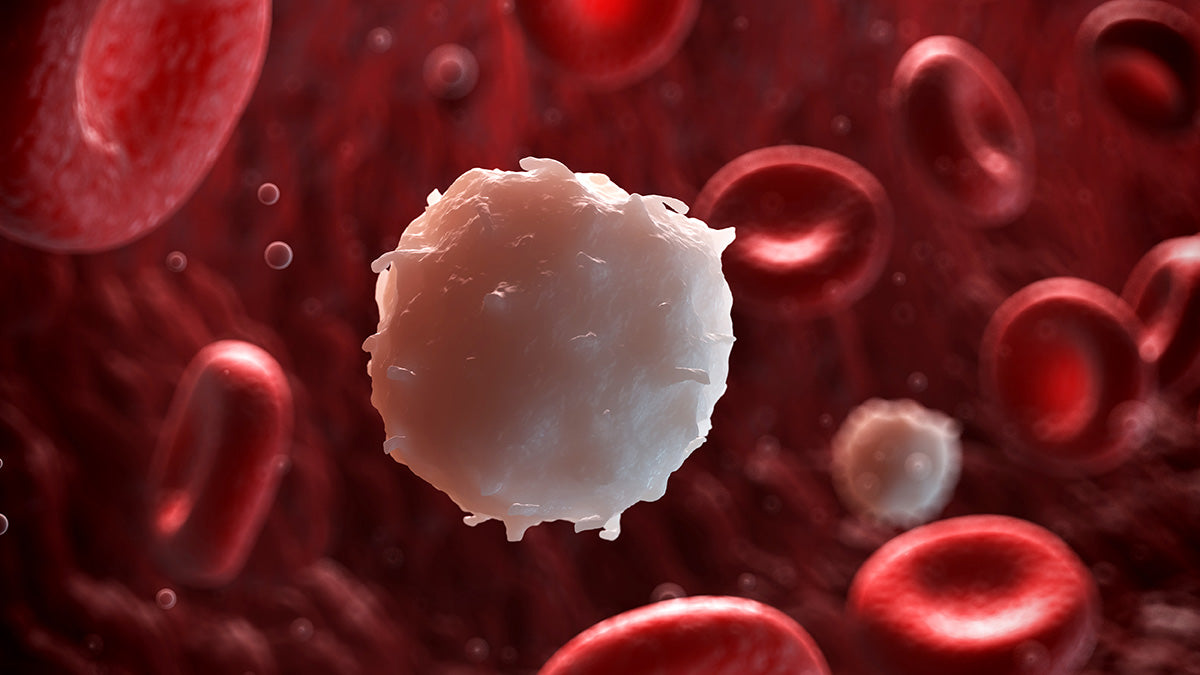The Language of Our Immune Cells

Researchers at UC Los Angeles have identified the “words” that immune cells use to call up immune defense genes. This is an important step toward understanding the “language” that immune cells use to communicate.
“In the midst of billions of cells, a particular cell can rapidly make complex decisions and send signals that direct the efforts of many other cells to make our bodies work in amazing ways,” notes doctor Jon Lieff. His book on cellular communication, The Secret Language of Cells, has been highly praised.
Cells talk among themselves all the time. In particular, white blood cells, red blood cells, cancer cells, and the natural killer cells of the immune system engage in cellular communications that determine health and disease.
"Cells have evolved an immune response code, or language," says senior researcher Alexander Hoffmann in a press release issued by UC Los Angeles. "We have identified some words in that language, and we know these words are important because of what happens when they are misused. Now we need to understand the meaning of the words, and we are making rapid progress. It's as exciting as when archaeologists discovered the Rosetta stone and could begin to read Egyptian hieroglyphs."
Many diseases are known to be related to miscommunication in cells. But, according to the researchers, this study is the first to recognize that immune cells employ a language, to identify words in that language, and to demonstrate what can happen after a mistake.
A study is published in Immunity. It reports that the researchers analyzed how more than 12,000 cells communicate in response to 27 immune threat conditions. Using an algorithm originally developed for the telecommunications industry, the scientists found six words that tended to show up when white blood cells of the immune system called macrophages responded to threat.
"The macrophage is capable of responding to different types of pathogens and mounting different kinds of defenses,” explains Hoffman. "For each immune threat, the right groups of genes must be mobilized.”
Then the researchers used a machine learning algorithm to model the immune response of macrophages. And they concluded that all six words are required for reliable cellular communication.
An important finding is that, in an autoimmune disease known as Sjögren's syndrome, two of the words of the cellular communication language are used incorrectly. This activates the wrong genes and triggers the disease.
"Indeed, we found defects in the use of two of these words," says Hoffmann. "It's as if instead of saying, 'Respond to attacker down the street,' the cells are incorrectly saying, 'Respond to attacker in the house.'"
This suggests that Sjögren's syndrome doesn't result from chronic inflammation, as long thought. But rather it may result from a word confusion that leads to inappropriate gene activation, causing the body to attack itself. The next step will be to find ways of correcting the confused word choices.
More Articles
Don't miss a beat! In our Pulse Newsletter, Thrivous curates the most important news on health science and human enhancement, so you can stay informed without wasting time on hype and trivia. It's part of the free Thrivous newsletter. Subscribe now to receive email about human enhancement, nootropics, and geroprotectors, as well as company news and deals.
Read more articles at Thrivous, the human enhancement company. You can browse recent articles in Thrivous Views. See other Pulse Newsletter articles. Or check out an article below.
-
ApresFlex Powers the Best Joint Supplement on the Market
Did you know that over 80% of the elderly say they could benefit from increased joint comfort? Improved joint comfort ...
-
Turmeric Improves Muscle Recovery After Intense Exercise
A randomized, double-blind, placebo-controlled trial was conducted to evaluate the effects of turmeric extract on inflammation and muscle damage after ...


